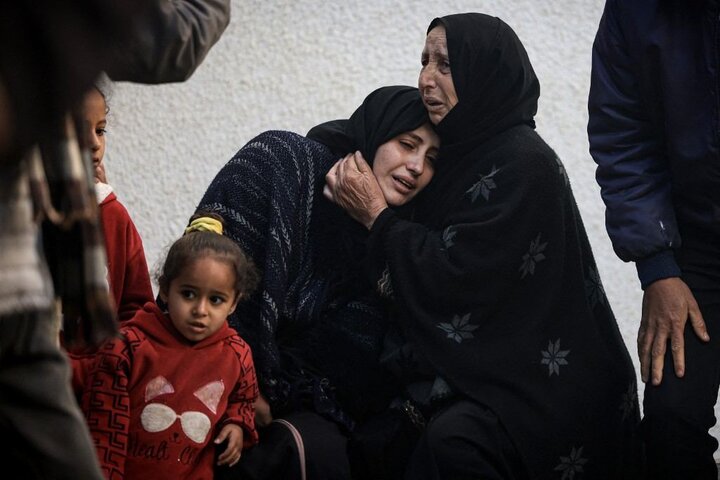The Israeli war on the Gaza Strip has put Palestinian women in tragic conditions where they suffer increased mental health issues, gender-based violence and difficulties accessing health and menstrual services, a survey has found.
The new assessment, published on Thursday by the Ramallah-based Palestinian Association for Empowerment and Local Development – Reform, found women in the war-ravaged strip struggle with interconnected crises amid the war.
Those include displacement, food insecurity, escalating violence, financial losses and lack of conflict preparedness and prevention knowledge, among other struggles.
“Women in Gaza are facing a dire situation and are among those hardest hit by the war,” Reform said.
“The war has deprived women and girls of stability and security. Gender-based violence has increased and the protection system has collapsed.”
According to Palestinian health officials, around 70 percent of the nearly 40,000 killed by Israel in Gaza since 7 October are women and children.
Of the 382 women surveyed by Reform from across the Gaza Strip, 40 percent indicated one or more of their family members had been killed during the war, while 67 percent said that they had lost contact with one or more family members.
Nearly 90 percent were displaced with 78 percent reporting having lost their homes.
Most respondents said they struggled with mental health issues, with over 80 percent experiencing severe anxiety, 70 percent suffering from depression and nearly 50 percent reporting post-traumatic stress disorder (PTSD) symptoms.
“Many women are in need of psychological support. Some have become violent, others are in shock and have stopped talking. We need security, we need proper food,” a respondent in the survey said.
Spike in violence
Gender-based violence, both physical and psychological, has also spiked during the war, most respondents said.
Two-thirds of interviewees reported physical violence has increased during the war, including from family members, while three in four women said psychological violence against women and girls has increased.
Almost all women said they faced challenges in obtaining sanitary pads, wet wipes, water to wash, privacy and adequate toilet facilities, according to Reform.
“We have had to resort to doing things we never thought we’d have to do, like cutting our clothes and using it as pads,” said a respondent from Deir al-Balah.
“We started cutting our clothes to wear as pads and the food we are eating is so unhealthy that it has affected our hormones.”
She added: “The period became irregular; we have digestive problems because of the water, so everything is messed up.
“Nothing is fine. We are not well psychologically, physically [and] financially, we cannot afford anything.”
The vast majority of women reported having limited or no access to healthcare amid a systematic dismantling of healthcare in the Gaza Strip by the Israeli military.
This is having a particular effect on pregnant women and new mothers who aren’t receiving the maternity care they need.
“I was displaced inside the hospital and gave birth there; it was very difficult. We were trapped without food or water. There is no medication or any kind of services available,” a respondent from northern Gaza said.
Basic needs unmet
Most women also said they struggled to access food, clean water and aid.
The war has caused nearly 80 percent of respondents to lose their source of income leaving them in financial need.
The survey also showed that nearly half of those interviewed reported having limited knowledge regarding conflict preparedness and prevention.
Reform said “intensive international intervention” was needed to alleviate the humanitarian crisis across the Gaza Strip, caused by the 10-month-long Israeli aggression and “compounded by the Israeli occupation’s severe restrictions and limited access to aid and protection”.
“The Association calls on the international community to intervene to stop the aggression, urging NGOs and donors to ensure that essential humanitarian supplies such as clean water, nutritious food, and medical aid are safely and regularly delivered to the most vulnerable groups in Gaza,” it added.
Middleeasteye


